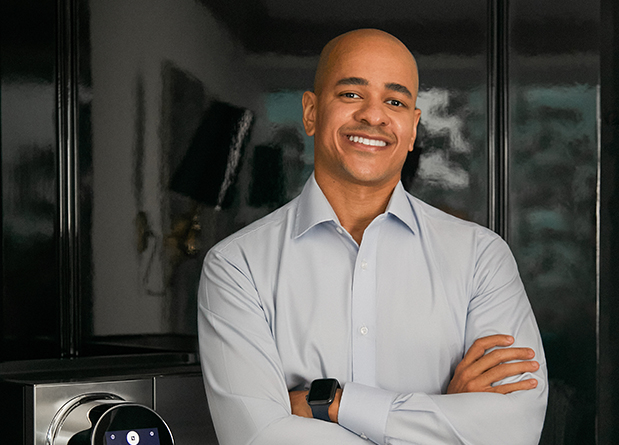Triston J. Francis, Management Consultanting
1. Can you please briefly describe what your role is / what you do for a living?
I am the Design Manager for the Boston Consulting Group’s (BCG) Leadership Institute. My team runs an executive education offering for our senior clients throughout Asia Pacific. My role is particularly focused on designing the curriculum that these leaders experience as part of our program and developing strategies to maximize their learning and growth.
2. What led you to choose your current career path?
I was drawn to my current career path given the overlap between BCG’s mission to unlock the potential of those who advance the world with my own personal aspiration of helping people become the best possible version of themself.
While at Harvard Business School (HBS), I worked alongside Professor Leslie Perlow, HBS’ Head of Research, to develop a course called ‘Crafting Your Life: the Tactics and Practices of the First 10 Years Post MBA’.
As her Research Associate, I interviewed 120+ HBS alumni regarding how their lives unfolded after business school. One of my greatest lessons learned through these conversations revolved around the importance of defining what purposeful work means to me. These chats informed my thinking and motivated me to select a job where I would derive a sense of fulfilment.
3. How do you feel about being in a career pathway that others / society deems to be ‘conventionally successful’?
If I had to summarize the feeling in one word, it would be “cautious.”
Success takes many forms and I believe it is important for every person to create their own definition rather than accepting society’s interpretation of conventional achievement as a universal truth.
Being in a career pathway that many people deem successful means that I must remain alert as it relates to reflecting on my true aspirations. With each step on this path that I take, I must be sure that I am doing it for internal reasons that will provide me with satisfaction as opposed to pursuing external validation.

4. Do you think your life has been easier or harder based on the type of career you’ve chosen or caliber of organisation you work for? Any myths you can dispel about your career choice?
I believe that my life has been easier as a result of my chosen career path and the caliber of my organization.
In addition to being surrounded by ambitious and bright colleagues, my company provides meaningful growth opportunities as well as extensive resources. This combination makes for optimal training grounds where I can continuously improve as a professional.
My line of work also provides a relatively generous compensation that enables me to focus on my areas of interest as opposed to making job decisions on the basis of financial upside. I am grateful to be in a career that is intellectually stimulating and regularly provides me with opportunities for professional advancement.
5. How has your chosen industry changed / evolved over the years? Have the benchmarks of ‘success’ in your industry also changed in your opinion?
The benchmark for “success” in management consulting has expanded over the years. While developing strategy remains essential to the industry, there is an increased amount of skills and capabilities required in projects today.
With rapid technological advancements and the increased amount of data, client needs are becoming more complex. As a result, teams must be multidisciplinary in order to deliver an effective solution.
6. How do you define success for yourself both within and outside of your career?
My definition of success is maximizing the time I spend doing activities that bring me happiness and fulfilment.
Given the wealth of experience that I have been fortunate to accumulate early in my career through investment banking and management consulting as well as the phenomenal academic institutions that provided me the skills required to continuously learn, I will have no shortage of jobs available that will offer me with more than enough money to provide a good life for myself as well as my family.
Consequently, when I reflect on what it will take for me to feel successful, I have decided to focus on impact rather than wealth accumulation. Although there is no universal way to measure purpose, my approach is to reflect regularly on what brings me joy as well as the type of impact that will make me proud.
7. What are the three skills you think millennials require today to truly be successful?
Given how rapidly the world today is changing, many millennials will soon find themselves not only working for companies that don’t exist today, but potentially also in functions which have not yet been conceived.
Consequently, I believe that millennials should focus on developing skills that can be applied to enhance their impact across a myriad of positions.
Three skills in particular are the ability to introspect, communicate, and learn.
Personal and professional growth begins with introspection and self-awareness. You must know what you want to improve before you are able to make progress. You must be clear on why you are doing something in order to have the motivation to sustain performance over time. Understanding yourself is a skill that requires patience and regular practice. Habits such as journaling, meditation, and therapy are phenomenal ways of strengthening your ability to introspect.
As it relates to learning, it is important that millennials remain open to new ways of thinking. While navigating school and the early years of our career, young people stand to benefit not only from the content we absorb, but also from learning how we best digest information. Developing your personal approach to self-improvement is an essential skill that will enable you to reinvent yourself as the world around us changes.
Communication will enhance your effectiveness regardless of the path you choose. Although we often start our careers as individual contributors, as we grow in success and influence, we amass a greater amount of resources in terms of support from people and capital to back our ideas. If you have a brilliant thought but aren’t able to convey it to others in a way that inspires them to see the world through your vision, then the idea is unlikely to come to fruition.
This piece is in partnership with Nespresso Singapore and Riviera, The Restaurant.
ADVERTISEMENT. CONTINUE READING BELOW





